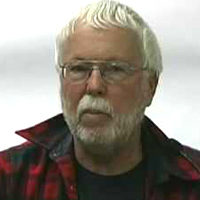
Zionism, like many words, has more than one meaning, and it has a different meaning to different people depending on the historic times, their location, and their own life history. Marxists and much of the world define Zionism as the ideology of the Israeli ruling class, much as the word “imperialism” defines our government and the U.S. ruling class.
For many American Jews, on the other hand, Zionism may mean the support for a Jewish state or even just a Jewish presence in Palestine, and for some, it’s supporting whatever Israel does.
I learned about Zionism in the Israeli school system growing up in the recently occupied Palestine of the 1950s. Our geography education began with a class called “Homeland” where we learned about all of Palestine as the Jewish homeland including the West Bank and Gaza Strip which were not occupied by the Zionist state at that time.
We began learning the bible in second grade. At my “secular” school we learned that God had promised the country to Abraham’s descendants, not all his descendants, it turned out, but only those of his son Isaac.
We were told that his other son, Ismael, is the father of all those who speak Arabic. That promise to Abraham, in the book of Genesis, the most mythological part of the bible was stressed.
Another part of the bible, our teachers stressed, was the description of the ancient Hebrews, led by Joshua, coming out of 40 years in the desert and conquering the country in a campaign of murder, enslavement, and ethnic cleansing of the Canaanite farming communities beginning with Jericho.
We were told that God had now kept his promise to Abraham. When we got to the Prophets, we concentrated on prophesies that foretold of a future exile and a return to the land after exile.
Hanukah was one of our favorite holidays because we had eight days off. It wasn’t considered a religious holiday. More importantly, it was a celebration of the liberation of Judea from Greek rule leading to about a century of an independent Judean state that lasted until the Roman conquest.
I’m mentioning Judea and not Israel because it was the “tribe” of Judah that had returned from Babylonian exile to resettle where they had left for exile. According to the scripture, there were twelve tribes of Israel and the largest, Judah, and the smallest, Benjamin, lived in Judea.
The other ten tribes were exiled by the Assyrians and never heard from again. In high school, we learned that the independent Jewish state of the Hellenistic Period first conquered the Edomites to their south and then people to the north so by the time the Romans came they had not only conquered most of what is now Palestine/Israel, but had also forcefully converted the inhabitants to the Judaic religion.
By the time the Roman legions arrived most practitioners of the Jewish religion in Palestine were descendants of converts. For example, King Herod of Judea was descended from Edomite converts.
I remember thinking back then that there was some big contradiction going on in the Zionist narrative. Our teachers assumed, taught, and implied that the increasing Jewish population of the first two centuries AD were people dispersed from Judea by immigration and by the Roman armies when they put down local rebellions.
While there are accounts of large numbers of captured Judeans sold into slavery it was implied that they kept their Jewish faith and prospered in the diaspora. That narrative seems ahistoric.
Slaves taken as prisoners in Roman wars were mostly youth and children, overwhelmingly illiterate regardless of nationality, and usually worked to death over a short span of years. It probably compares to African slavery in the U.S. where a substantial percentage of West African slaves were Muslim when they arrived but Christian by the time of the Civil War.
Historic research shows that, like other religions, Judaism spread outside of Palestine by proselytizing. The pre-Christian Roman Empire was a cauldron of mixed new religions, including Judaism and Zoroastrianism which competed with the Roman/Greek and Egyptian paganism.
Jewish monotheism appealed to many people and many historians estimate that as much as 10% of the Roman empire became Jewish, and maybe double that in the Eastern Mediterranean region.
Christianity entered this milieu a little later and spread first among Jewish practitioners before spreading to Gentiles. Only after Emperor Constantin made Christianity the state religion did Jewish authorities, for reasons of self-protection, pass edicts against proselytizing, as they were to do later under Islamic rule.
Major world religions that have spread through conquest and proselytizing, succeeded because they had written scriptures which a few, very few, literate people, could read and interpret. That goes for Christianity, Islam, Buddhism, and Hinduism, as it was for Judaism at one time. The Jewish masses in the Roman diaspora did not speak Hebrew or Aramaic, the language of Palestine. Thousands of Roman Jewish burial markers uncovered by modern archeologists are written in Latin and Greek with only an odd biblical verse or prayer in Hebrew.
The Jewish people who were massively expelled from Spain in 1492 spread across the Mediterranean and kept speaking Judeo-Spanish (Ladino) for 500 years. Our Turkish Neighbors and many of the Jews from Alexandria that I grew up with spoke Ladino at home.
Our Eastern European neighbors all spoke Jewish(Yiddish), a Germanic language they brought with them when they moved east from Germany into the Polish Empire a few hundred years ago.
If the Jews in The Roman empire had been people dispersed from Judea, they would certainly not have lost their Aramaic language overnight.
We were also taught about the Jewish Kingdoms that arose in Yemen, Mesopotamia, Central Asia, Berber North Africa, and elsewhere in the first millennium when the royal families converted to Judaism. Our teachers implied that it was only the royals and nobility and not the general population, but most of those areas had a large Jewish concentration right up to the 20th century.
And their explanation for the sparse Jewish population remaining in Palestine is that Roman dispersion rather than the logical explanation that the Christian coercion followed by Islamic rendered the same results in Palestine as it did elsewhere, massive conversion.
History, especially ancient history, does not have all the answers because we only have scattered written records, but we must use logic to figure things out. But certainly, the mythological promise God made to Abraham more than 3000 years ago is not good evidence that today’s Jews are all, or even mostly, his descendants. Unfortunately, not only Jews but also Christians, Muslims, and many secular folks, believe that today’s Jews are descendants of the biblical twelve tribes of Israel.
We were also taught about the founding of Zionist movements in the very late 19th century. The last part of that century was when Europeans were grabbing colonies in Asia, Africa, and the Pacific. Social scientists were developing theories about the human races.
The new theories about human evolution were used to justify colonizing. Books were written about Arabs and other Africans being less than white humans: either less evolved culturally as a group or that they were biologically inferior, or that they have particular national characteristics that needed time to mature. That attitude still persists in Israel.
I’ve heard Israeli Jews say that Arabs are genetically prompted to slit throats. These racist ideas co-existed in Europe with the rising nationalism of imperialist countries competing for colonies and of eastern European peoples struggling for national liberation from Prussia, Austria, Turkey, and Russia.
The assumption, based on the promise to Abraham, was that Jews were Semitic and therefore inferior, like the Semitic Arabs. That’s where the term anti-Semitic comes from, and discrimination against Jews in Europe became race-based instead of the historical discrimination and oppression based on religion.
The rise of nationalism in Europe coincided with increased oppression of Jews, especially in Tsarist Russia where most of the world’s Jews lived, and led to the birth of a Jewish nationalism. Since European Jews had no definitive land area like other European peoples the idea of “return to Zion” as the historical land of the Jews gained prominence and Zionism was born. European Jews were overwhelmingly Yiddish speakers who thought of themselves as Jews, not Polish or Latvian. The persecution they suffered led to mass immigration to North and South America, and not to Zion.
The Zionist movement did convince a constant trickle of Jews to Immigrate to Palestine, but the majority of Jews were not interested. The Holocaust changed all that. Jewish refugees from Europe were encouraged, sometimes tricked, into settling in Palestine. After the war, survivors who had taken refuge in the Soviet Union, but didn’t want to stay, found their way to Israel, half of whom only waiting until they could immigrate to North America.
In addition, Jewish Zionist organizations in Arab countries, although small, helped drive Jews to immigrate. Under instructions from the Israeli Government, they bombed Synagogues to scare Jews, while the reactionary Arab kingdoms were broadcasting anti-Jewish rants on the radio.
In school, we were taught that all the Gentiles hate Jews and always have: that the only safe place for Jews is in a Jewish country willing to stand up and fight.
We were taught that the Nazi slaughter of six million Jews happened because Jews didn’t fight back. That’s why we needed to kill Arabs.
Until this day I’m overcome by shame caused by those lessons whenever the holocaust is discussed. The 19th-century racist thinking is still deeply embedded in Israeli thinking. They see Arabs as a race with particular characteristics so they have to be dealt with as a group.
When people ask me why are they killing innocent babies in Gaza I feel like answering with, “What part of revenge don’t you understand?”
When folks find out that I grew up in Israel I’m asked what the solution is. I answer that it’s Peace. Also, that we must support the right of the Palestinian people to self-determination. But first, we need to demand that the current killing stop. Write President Biden. Contact your congressional representatives. Go out and demonstrate.
We hope you appreciated this article. At People’s World, we believe news and information should be free and accessible to all, but we need your help. Our journalism is free of corporate influence and paywalls because we are totally reader-supported. Only you, our readers and supporters, make this possible. If you enjoy reading People’s World and the stories we bring you, please support our work by donating or becoming a monthly sustainer today. Thank you!










